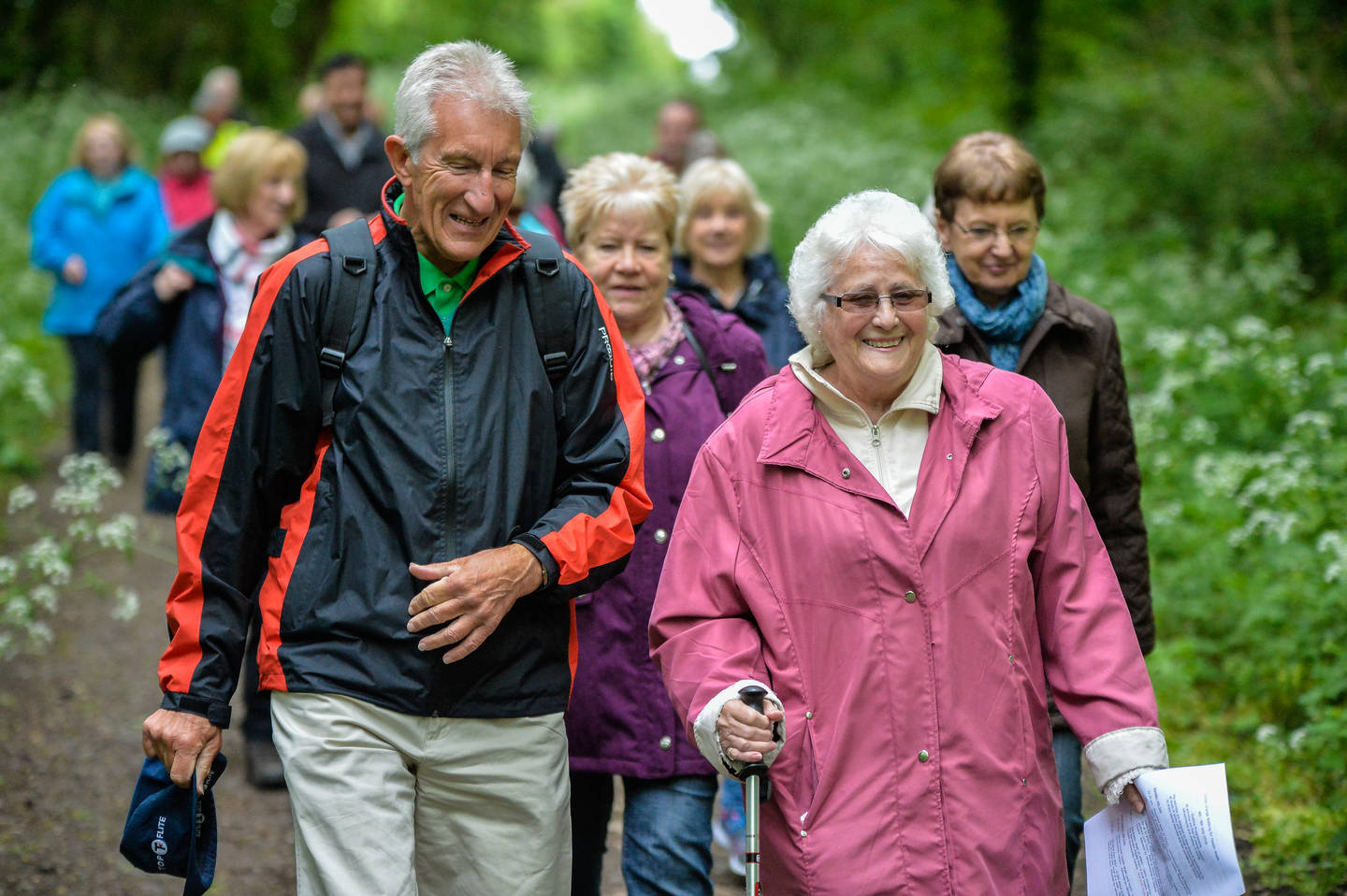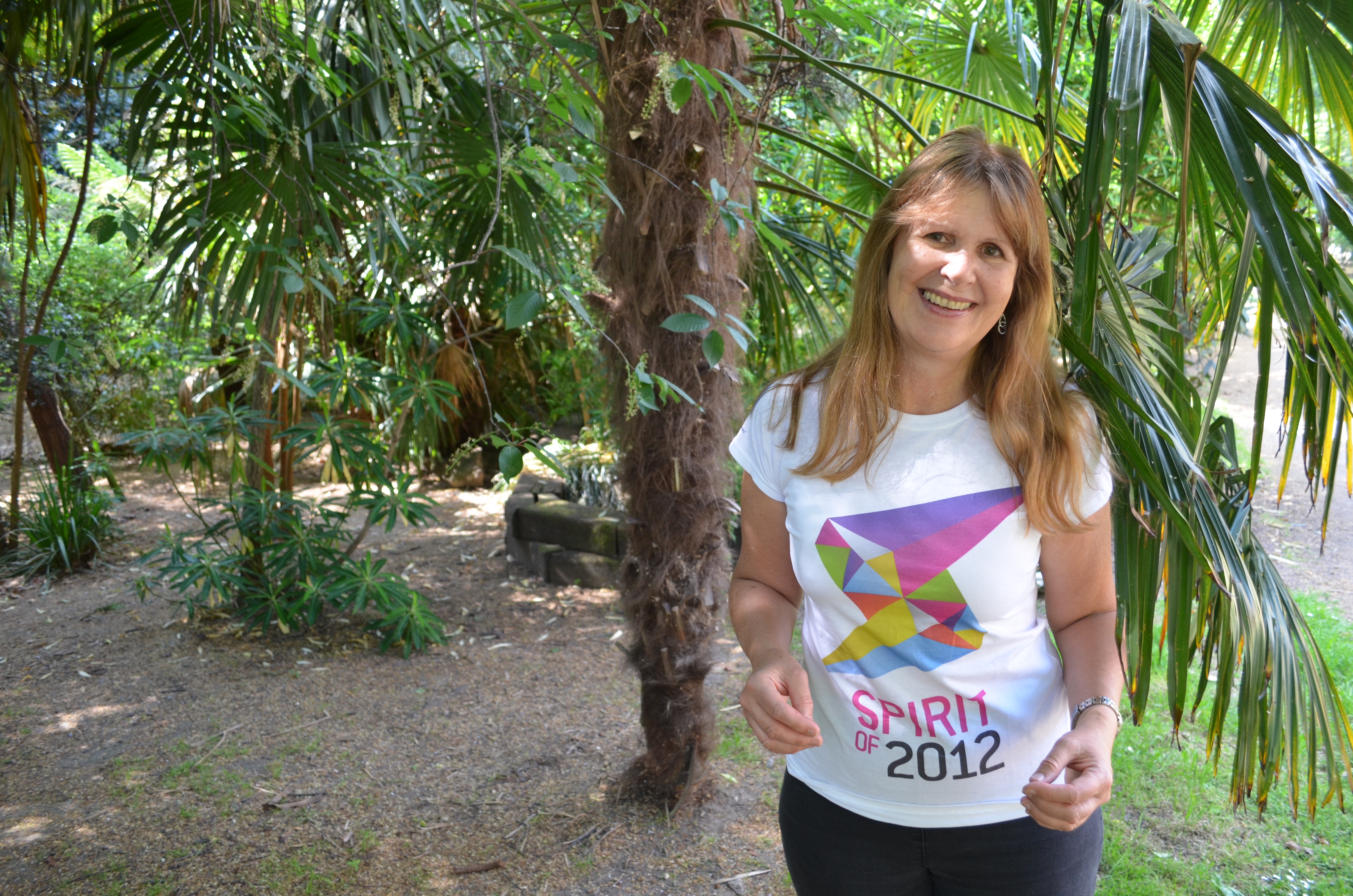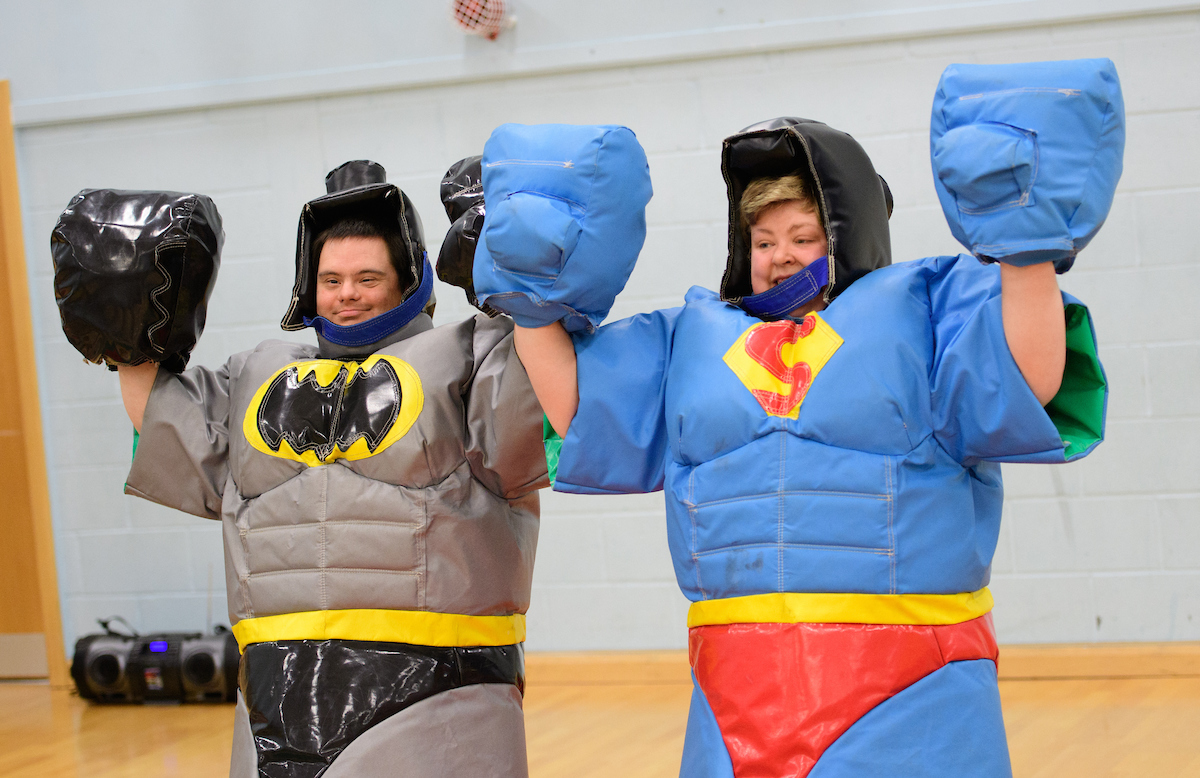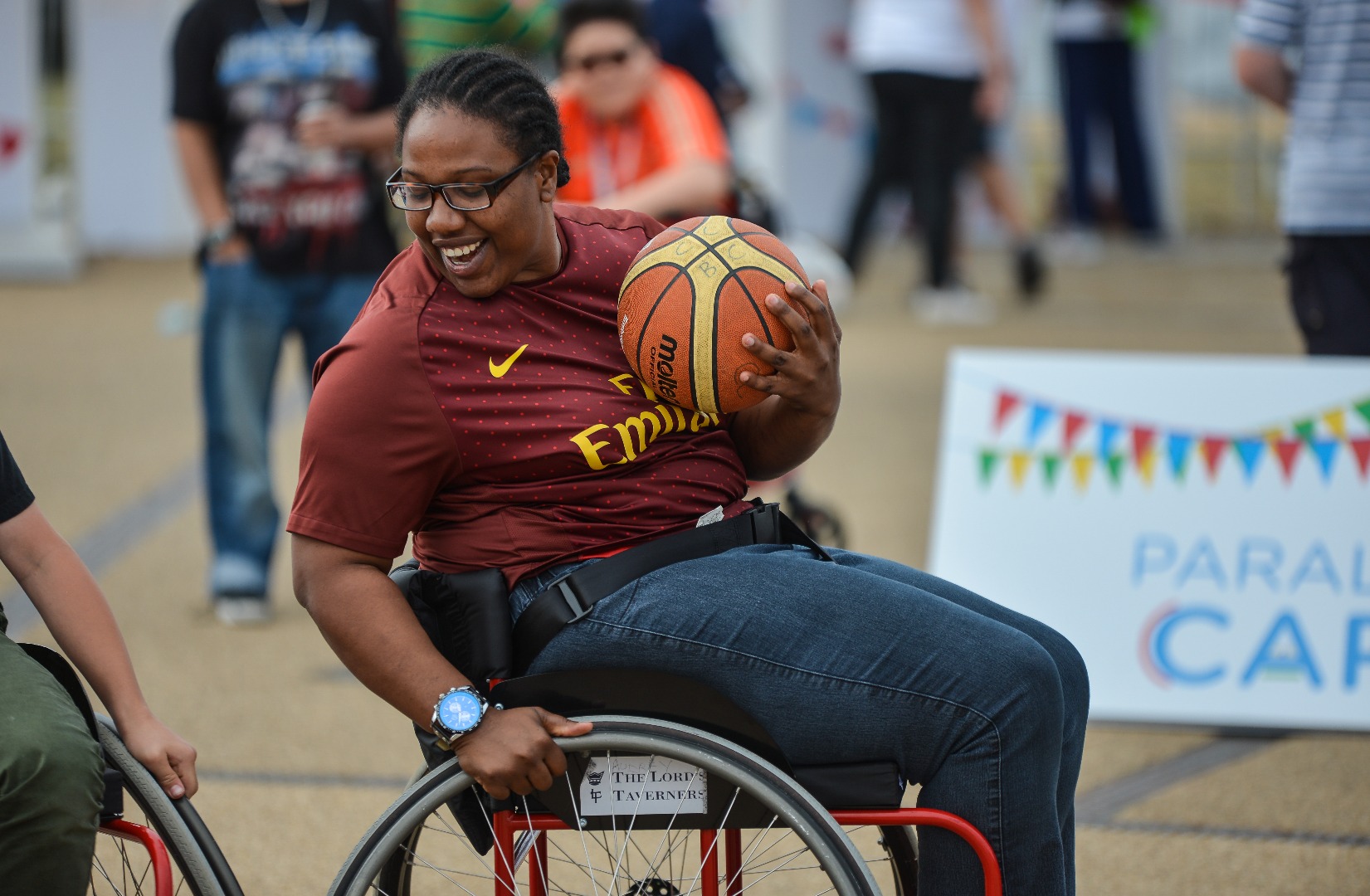Finding happiness in work, rest or play on World Mental Health Day
Mental health problems can affect anyone- one in four of us will experience a mental health problem every year. The World Health Organisation recognises World Mental Health Day on 10 October. The day provides an opportunity to talk as well as outline what more needs to happen to make mental health care a reality for people worldwide. This year's theme set by the World Federation for Mental Health is mental health in the workplace. Here, three Get Out Get Active partners talk about the programme’s influence on mental health, in the community and workplace.

Whether you are someone looking to boost your own wellbeing or an employer seeking advice on supporting your staff, you can get involved in many ways with World Mental Health Day. We encourage all partners involved in Get Out Get Active (GOGA) to find the time and space for a happier and healthier workplace.
GOGA is an exciting programme that supports disabled and non-disabled people to enjoy being active together. It runs for over three years (2016-2019) and within 18 localities across the UK. We have teamed up with an extensive range of partners to help us reach more people, who have the greatest need to get out and get active. These partners offer in-depth local knowledge and national expertise.
Funded by Spirit of 2012, all partners are focused on getting some of the UK's least active people moving more through fun and inclusive activities. We want more people to feel the benefits of improved physical and mental health.
Read more from three GOGA partners below.
Debbie Lye, Chief Executive at Spirit of 2012

How do you aim to improve people’s mental health through the GOGA programme?
A wide range of research into the link between physical and mental health has confirmed that there is overwhelming evidence demonstrating that increased physical activity leads to improved wellbeing and mental health. By helping the least active people in the UK to become more active, we are deliberately aiming to improve their mental health and wellbeing, as well as their physical health.
Can you give any good examples of people who have recognised a mental health improvement thanks to GOGA?
It’s not just GOGA participants who are benefitting. We’re also finding that people who volunteer at their local GOGA projects are noticing an improvement in their own mental health. One volunteer we heard from, Neil, credits volunteering with improving his own life and helping him return to employment. He explained, “If you had seen me before I started volunteering, I was a mess; I didn’t really take care of my appearance, I was overweight, I was an alcoholic and I was depressed all the time.” Neil now regularly volunteers with young disabled people in his community, and his newfound skills and confidence have recently helped him to get a new job.
What do you personally look for in a happier and healthier workplace?
I think that a workplace is at its happiest when people are supported and encouraged to use their own skills and strengths- to make a difference to their organisation and the wider world.
Sarah Eyley, Disability Sport & Leisure Officer, Sport, Community and Leisure Centres, Nottingham City Council

How do you aim to improve people’s mental health through the GOGA programme?
In year two of GOGA, there are some exciting new developments engaging with Mental Health professionals within areas of Nottingham City. The main areas of support will be through Highbury Hospital, Thorneywood and Nottingham Community Housing Association’s tenant support team. We plan to provide physical activity in an in-patient setting to assist with the support, recovery and wellbeing of patients. Following this we will then look at supporting the transition of individuals back into the community through both gym and fitness sessions in their local leisure centres. We want to promote and encourage their long-term wellbeing and activity.
Can you give any good examples of people who have recognised a mental health improvement thanks to GOGA?
We have received a number of participants’ feedback demonstrating the positive mental health improvements. In our netball case study, Naseer says, “I love playing netball it helps to reduce my stress levels and improved my sleep!”
What do you personally look for in a happier and healthier workplace?
A relaxed and reduced stress environment. A place with natural light and fresh air, and supportive and friendly colleagues. Also, the opportunity for downtime and time away from a desk!
Karla Burton, Inclusive Sports Officer at Bradford Disability Sport and Leisure (BDSL)

How do you aim to improve people’s mental health through the GOGA programme?
Through the Bradford programme we strive to transform activities and opportunities into an enjoyable experience for everyone. We concentrate on the positive impact physical activity has on the mind and the happy endorphins released when you exercise. We say – your pace, your time, get active your way. So, when you attend GOGA programmes you can do as little or as much as you want, and we will do our best to make you smile.
Can you give any good examples of people who have recognised a mental health improvement thanks to GOGA?
We have a fantastic volunteer that supports us on the administration and social media for GOGA. When we first asked what attracted him to the volunteer role, he explained that the relaxed and welcoming approach made him feel at ease. He felt previous volunteer roles had not been suitable. He had 20 years of living with mental health problems and now his role makes him part of the BDSL family. We enjoy every Thursday when he comes in. The positive impact the voluntary role has had on him has been fantastic to see. His confidence and overall demeanour has really improved and you can tell he really enjoys his time in the office. He now has prospects for the future- to gain employment in the administration world and I’m fully confident he will achieve that. Did I also mention he is a fantastic karate coach?!
What do you personally look for in a happier and healthier workplace?
ABC – Ambition, Banter and Comfort. It’s really important that everyone has ambition and motivation in the workplace to help each other and pick each other up when you’re down. If you don’t become a work family, you won’t be as happy. Banter – a good tummy giggle is something everyone needs to brighten their day. If you can’t enjoy yourself- you’re not in the right job. Comfort – I’m not talking about wearing onesies to work! But you have to be comfortable with the people you work with and the environment you’re in. Good mental health equals better results. I think it’s really important to check in with your colleagues at least once a day- even if it’s just a smile.
Tips for staying well in everyday life and at work
Mind provides advice and support to empower anyone experiencing a mental health problem. They campaign to improve services, raise awareness and promote understanding.
Living with a mental health problem can often have an impact on day to day life, making things that others might not think about a bit more difficult. Mind has some great tips and guides to help you cope with everyday life.
Mind also has suggestions on how to stay well at work including reclaiming your lunch break, achieving that all elusive work-life balance and the five essential steps to improving wellbeing on a daily basis.
Take a deep breath
Learning to breathe more deeply can make you feel a lot calmer and increase your sense of wellbeing. Take five minutes to try out this simple breathing exercise. Once you've got the hang of it you can use this technique anywhere - at work, at home or on the bus or tube - anytime you feel your stress level rising or need a moment of calm.
Watch this short film on breathing.